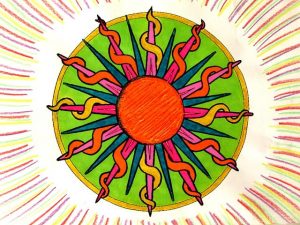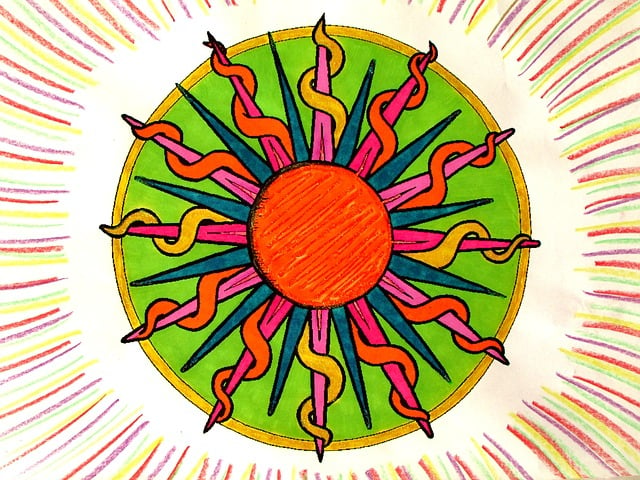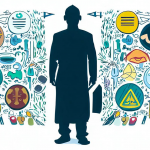If you’ve heard of Reiki, you may know it as a form of alternative medicine that involves the channeling of energy to promote healing and relaxation. But have you ever wondered about the science behind this practice?
In recent years, researchers have been exploring the effectiveness and benefits of Reiki, shedding light on its mechanisms and potential uses.
At its core, Reiki is based on the idea that everything in the universe is made up of energy. Practitioners believe they can tap into this energy field and use it to promote physical, emotional, and spiritual well-being.
While some people remain skeptical about this approach to healing, others swear by its ability to reduce stress, ease pain, and improve overall health.
So what does science have to say about Reiki? Let’s take a closer look at how it works and what research has found so far.
Understanding the Basics of Reiki
 You’re about to dive into the basics of Reiki, where you’ll discover how this ancient healing practice can bring balance to your mind and body.
You’re about to dive into the basics of Reiki, where you’ll discover how this ancient healing practice can bring balance to your mind and body.
Reiki originated in Japan in the early 20th century and is based on the principle that a practitioner can channel energy into a patient’s body through touch or hovering hands.
The word ‘Reiki’ comes from two Japanese words: ‘rei,’ which means universal, and ‘ki,’ which means life force energy.
The principles of Reiki are simple but powerful. They include practices such as being mindful of your thoughts, letting go of anger and worry, showing gratitude, and practicing self-care.
By following these principles, it’s believed that individuals can tap into their own natural healing abilities and promote physical, emotional, and spiritual well-being.
In essence, Reiki is a holistic approach to health that focuses on restoring balance to the body’s energy systems.
It’s not meant to replace traditional medical treatments but rather complement them by promoting relaxation and reducing stress.
With its origins deeply rooted in Eastern philosophy and spirituality, Reiki has gained popularity around the world for its gentle yet effective approach to healing both body and mind.
The Mechanisms of Energy Channeling
The mechanisms of energy channeling are fascinating, as practitioners believe they can tap into a universal life force to promote healing.
Reiki’s foundation lies in the principles of quantum physics, which explain that everything is made up of energy and vibrating at different frequencies.
Practitioners use their hands to channel this energy, promoting relaxation and reducing stress levels.
Reiki also focuses on chakra alignment, or the seven points in the body where energy flows through. These points must be open and aligned for the body to function properly.
When blockages occur in these channels due to emotional or physical trauma, Reiki practitioners work on clearing them to restore balance and harmony within the body.
Research into Reiki’s effectiveness is ongoing, with mixed results. However, many people report feeling more relaxed and experiencing less pain after sessions with a practitioner.
The mechanisms behind Reiki may not be fully understood by science yet, but its popularity continues to grow as people explore alternative methods of healing that focus on mind-body connections rather than medications alone.
Research on Reiki’s Effectiveness
Have you ever wondered if Reiki can truly help with reducing pain and promoting relaxation? Well, there’s ongoing research studying its effectiveness that may provide some answers.
Meta analysis studies have shown that Reiki therapy has significant benefits in reducing anxiety, depression, and pain levels among patients. However, these studies also suggest that the placebo effect might play a role in the perceived benefits of Reiki.
Despite this, recent studies have tried to control for the placebo effect by using sham treatments and randomized controlled trials. One study found that patients who received Reiki treatment had significantly reduced levels of stress compared to those who received a sham treatment. Another study showed that cancer patients who underwent Reiki therapy experienced less fatigue than those who did not receive it. Additionally, some studies have found that Reiki can improve sleep quality and reduce symptoms associated with fibromyalgia.
In conclusion, while there is still ongoing research on the effectiveness of Reiki therapy, early results suggest significant potential benefits for reducing stress and improving overall well-being. While some skepticism remains regarding the role of placebo effects in perceived improvements from this practice, recent studies have attempted to address this issue through rigorous experimental design.
Overall, it seems clear that there are many promising avenues for future exploration into the therapeutic properties of energy channeling practices like Reiki.
Exploring Reiki’s Benefits for Health and Well-being
If you’re eager to learn more about how Reiki can positively impact your health and wellness, this section will delve deeper into its potential advantages.
Reiki has been found to be effective in providing stress relief, which is a major factor in maintaining good health. The practice of Reiki involves gentle touch or hovering hands over the body to activate the natural healing processes of the body. This helps reduce stress levels and promotes relaxation.
Additionally, Reiki has also shown promise as a complementary therapy for chronic pain management. Studies have found that individuals who received regular Reiki sessions reported reduced pain levels and improved overall quality of life. It is believed that this benefit arises from the ability of Reiki to promote balance and harmony within the body’s energy systems.
Other benefits of Reiki include improved sleep quality, enhanced immune system function, and increased mental clarity. By promoting deep relaxation, it helps improve sleep patterns while enhancing the body’s natural ability to fight off infections and illnesses. Furthermore, some people report feeling more focused and centered after receiving a Reiki treatment.
Overall, taking advantage of these potential benefits requires an open mind and willingness to explore alternative forms of therapy for improving one’s health and well-being. With its non-invasive nature and proven effectiveness in reducing stress levels and managing chronic pain, Reiki may be worth considering as part of your holistic wellness routine.
Is Reiki a Legitimate Form of Complementary Medicine?
You may be wondering if Reiki is a valid form of complementary medicine, and the answer lies in understanding how it works and its potential benefits for your health and well-being.
Firstly, exploring reiki’s history reveals that it originated from Japan in the early 20th century as a spiritual practice aimed at promoting healing and relaxation. Today, Reiki has become increasingly popular around the world as a complementary therapy used alongside conventional medicine to alleviate symptoms of various illnesses.
However, there are several common myths about Reiki that have led some people to question its legitimacy. For instance, one myth suggests that Reiki practitioners possess supernatural powers that enable them to heal others through touch alone. This is not true as the practice involves channeling energy from the practitioner’s hands into the recipient’s body to stimulate their natural healing processes.
Another misconception is that Reiki can only be performed by those who possess special abilities or training. In reality, anyone can learn how to perform this technique with proper training.
Overall, research has shown promising results regarding the effectiveness of Reiki as a complementary therapy for various conditions such as anxiety, depression, chronic pain and insomnia.
While more studies are needed to fully understand how it works and its long-term benefits on overall well-being, many people attest to experiencing positive changes after undergoing this treatment.
Therefore, if you’re considering trying out different forms of complementary therapies or seeking alternative treatments for your health concerns, Reiki could be worth exploring further under professional guidance.
Can Reiki be used to cure serious medical conditions?
If you’re wondering whether Reiki can cure serious medical conditions, the answer is not entirely clear. While some studies have shown that Reiki may help alleviate symptoms of chronic illnesses like pain and anxiety, there is no scientific evidence to suggest that it can cure these conditions outright.
In terms of cancer treatment, Reiki has been used as a complementary therapy to help manage side effects of chemotherapy and improve quality of life for patients. However, it shouldn’t be used as a substitute for traditional medical treatments prescribed by healthcare professionals.
It’s important to approach Reiki with an open mind and understand its limitations in treating serious medical conditions.
How often should one receive Reiki treatments to see results?
If you want to see results from your reiki treatments, it’s not enough to just go once in a blue moon. No, my friend, you need to make this a regular part of your routine!
The frequency of your reiki sessions is key to experiencing the long-term effects of this practice. While some people may feel immediate benefits after just one session, sustained healing and transformation usually require multiple appointments.
So don’t be afraid to commit – whether it’s weekly or monthly sessions, sticking with a consistent schedule will help you reap the full rewards of reiki.
Can Reiki be performed on oneself, or does it require a trained practitioner?
Performing self Reiki techniques can be a powerful tool for personal growth and development. You don’t necessarily need a trained practitioner to benefit from the practice.
With some basic knowledge, you can learn how to perform Reiki on yourself and experience its healing effects. Self-Reiki involves using your hands to channel energy into various parts of your body, promoting relaxation, stress relief, and emotional balance.
While receiving Reiki from a professional is helpful, practicing it on yourself allows you to take control of your own healing journey and incorporate it into daily life as needed.
Is there any scientific evidence that Reiki can improve mental health conditions?
Looking for proof that Reiki can help with mental health issues? The answer lies in the Reiki research. Though there are few studies on this topic, some have shown promising results.
For example, a 2018 study found that patients with depression and anxiety who received Reiki treatments had significant improvements in their symptoms. Additionally, a 2020 study found that Reiki was effective in reducing stress and improving mental wellness in healthcare workers.
While more research is needed to fully understand the benefits of Reiki for mental health conditions, these findings suggest that it could be a valuable tool for those looking to improve their well-being.
Are there any potential risks or side effects associated with Reiki treatments?
When it comes to reiki treatments, there are some potential risks and precautions you should be aware of. For example, if you have a pacemaker or other medical device that’s affected by electromagnetic fields, you should avoid certain types of reiki treatments.
Additionally, while there is some evidence of efficacy in clinical settings for certain conditions like anxiety and depression, it’s important to remember that reiki should not be used as a substitute for conventional medical treatment.
As with any complementary therapy, it’s essential to talk with your healthcare provider before trying reiki to ensure it’s safe for you and won’t interfere with any other treatments you’re currently receiving.
You now have a better understanding of the science behind Reiki and its potential benefits for your health and well-being. By exploring the basics of Reiki and how energy channeling works, you can appreciate the mechanisms at play during a session.
You also know that research on Reiki’s effectiveness is still in its early stages, but initial results are promising. Moreover, you’ve learned about the many benefits of Reiki, including stress reduction, pain relief, improved sleep quality, and enhanced emotional well-being.
While some may question whether Reiki is a legitimate form of complementary medicine, it has gained popularity as an alternative therapy worldwide. Ultimately, whether or not to try Reiki is up to you – but with an open mind and willingness to explore new approaches to wellness, you might just find that it brings balance into your life.









